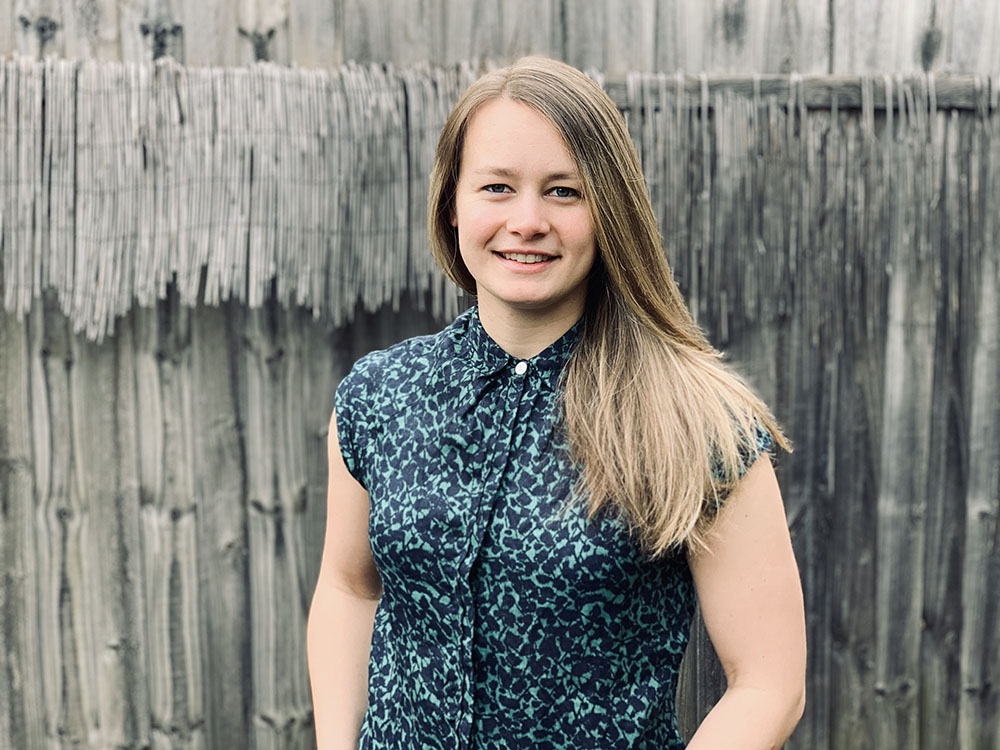Spotlight on a Student: Rebecca McQuillan
The electrochemical regeneration of granular activated carbons in situ of permeable reactive barriers

Rebecca McQuillan is in the final month of her PhD, hoping to submit in August. Doing a PhD was never a certainty for Rebecca, but she knew she wanted to pursue something that would make a change in this world for the better, whether that be academia or industry.
Who Rebecca met discuss her PhD idea with her soon-to-be-supervisor, Geoff, he showed her photos of existing oil spills in Antarctica with seals and penguins rolling around in the slippery mess. She walked away from the meeting knowing she couldn’t overlook the opportunity to find a solution.
"The thought of being able to put my knowledge and engineering skills to something so useful and real really excited me," she said when we interviewed Rebecca on her research and plans for the future.
What is your research about?
Approximately 25,000 tonnes of crude oil is spilled into the environment each year, and of the seven continents of the world, none have managed to escape this statistic. This fact is inclusive of Antarctica, a region envisioned to be a land of unspoilt wilderness and marvel. Due to a historic lack of environmental awareness, human activities in the last two centuries have left this region with oil spills, abandoned research stations, and about 1 million cubic meters of contaminated soils. These contaminated sites continue to leach fuels and toxic metals through rock and surface waters and are reaching environmental receptors such as penguin rookeries and fluorescent underwater ecosystems. But with an improved understanding of the consequences this can cause, scientists and engineers are starting to combine forces to remediate these regions such that Antarctica can return to the pristine conditions it once displayed.
This is where my PhD comes in. In the last four years, we have been attempting to develop a technology that can aid in the clean-up of these contaminated sites and ultimately put an end to the migration of fuels. Specifically, I have been looking at using electrokinetic oxidation methods to breakdown contaminants in situ, using a single and environmentally friendly reagent – the electron. By first capturing the migrating contaminants onto adsorptive materials, such as a bed of activated carbon in the ground (referred to as a permeable reactive barrier), we can then take advantage of the electrical conductivity of the carbonaceous material and merely turn it into an electrode surface. By controlling the conditions within the bed of adsorptive material and promoting the necessary electrochemical reactions, we can then fully breakdown and remove contaminants from the ground before they are able to disperse into the environment. This method has proven to be environmentally friendly, use minimal energy, and requires little to no manual labour – all key criteria when attempting to remediate regions in remote and extreme environmental areas such as Antarctica. It is hoped that such a technology can be extended for use in temperate and/or industrial processes for regenerating activated carbon itself, as it is estimated that on a global scale about 5 million tonnes of activated carbon are used annually, with a majority of it being discarded as waste.
Who are your supervisors?
I have had the privilege to work alongside two highly inspirational supervisors, Prof Geoffrey W. Stevens and A/Prof Kathryn A. Mumford, who have pioneered the Antarctic remediation program at the University of Melbourne.
What do you want to do next?
I’m not sure where I am going to end up, but I feel that it is important for me to continue working in areas that either improve upon the state of the environment, or aid in increasing the sustainability and efficiency of industrial processes. At the end of the day, I believe it is the responsibility of engineers to increase the sustainability of our planet for the generations to come.
Have you received any awards?
I am a recipient of the Melbourne Research Scholarship, which has substantially funded the duration of my PhD, and I was the 3rd place winner of the ‘Geosyntec Student Paper Competition 2018’.
Further information
My supervisors and I welcome any questions or comments. Please email me on mcqr@student.unimelb.edu.au.